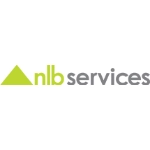© 2025 Next Level Business Services Inc. All Rights Reserved.
Best practices for implementing an effective RPO Services
By NLB Services
Recruitment Process Outsourcing (RPO) is becoming increasingly popular among organizations of all sizes. RPO is meant to streamline the recruitment process of any organization by reducing its costs. The first thing an RPO service provider does is to call out when starting the implementation value of the process itself. The second thing that it does is the team’s efforts. It is essential for the success of the project. It’s not you as a company or them as the RPO team, it’s us!
Then, both combine and work as a team. Regardless of how many phases your RPO provider has planned, there are some key activities that, as a client, you should look out for.
So you’ve engaged an RPO partner for your company and want to implement it as soon as possible, but the RPO Services provider is asking for a significant amount of time for implementation, does that sound familiar?
The first reaction will be to think how painful and time-consuming the recruitment process will be. You will probably ask yourself questions regarding the resources required and how you are going to drive the expected change within your organization. But don’t worry, there is always light at the end of the tunnel.
Partner Selection for RPO Services
To partner with an RPO services provider you should first know the type of RPO services you need for your organization. Let us take you through the types of RPO services
1- Fully Outsourced RPO
In this type of RPO, clients outsource their entire recruitment function to a third-party agency. The RPO provider is responsible for the firm’s end-to-end hiring process – from sourcing candidates to hiring them.
2- ROD (Recruitment on Demand)
Recruitment-On-demand is helpful for organizations in various ways as it helps them to improve their internal recruitment efforts and meet the best talent. Additionally, recruitment on demand makes them meet with candidates who want to work long-term with the company.
3- Project-based RPO
As the name suggests, in project-based outsourcing, the client appoints an RPO service provider for a specific period and for particular open roles in specific projects.
4. Half Outsourced – Half In-house RPO
Also known as hybrid outsourcing, when the client engages the RPO vendor only to fill specific open positions that are tough to fill, while the other remaining positions are filled by their in-house recruitment team.
So these are the types of recruitment process outsourcing services. Choose the one that best suits your business needs.
Determine if RPO implementation is truly necessary for your organization
Ensure that your company really needs an RPO partner
It sounds obvious, but many organizations need clarification about whether to use RPO to streamline their recruitment process. There are a lot of first-generation buyers that confuse RPO with a contract recruiter model. RPO providers do due diligence and are combined within your business to manage your end-to-end hiring processes. RPO agencies build best practices and set up processes and strategies that drive long-term efficiencies for your company. Make sure when your company needs an end-to-end recruitment solution or outsources some portion of hiring to an RPO. At the same time, your RPO services provider should also ensure that their solutions will fulfill your unique business needs. Articulate the talent acquisition challenges your company is facing and whether they will be fulfilled by the RPO agency/company you are hiring.
Set clear timelines for RPO
Establish a timeline for the entire RPO service you’ve hired for. Check for their process upfront according to the business goals and deliverables. Simply having a deadline for submission isn’t enough. You, as a company, need to split the process into stages (both internally and externally) to get the results you need to succeed in the business. So, even before you start putting a timeline together, you need to discuss your talent acquisition outsourcing requirements with key organizational stakeholders and then make the decision.
Now, talking about the time RPO takes for implementation, it varies from project to project basis and the contract terms. Here’s how?
It varies depending on the complexity of the project, the company’s goals, desired model, timelines, and the technology and capabilities of the RPO provider. For example, a multi-country RPO partnership with several thousand hires will take more and more time to set up and implement on the projects as compared with a small project-based RPO partnership in a single location.
Best practices for RPO implementation
Pre-Planning
You and your RPO provider will need to work together to figure out your organization’s existing hiring resources and constraints at the pre-planning step. Businesses then also need to tell their RPO partners their hiring expectations and explain the terms of the partnership. An excellent way to do this is to create a list of must-dos and things that you don’t need.
For a successful talent acquisition solution implementation, the active participation of executives is required. Active involvement brings tremendous support to the hiring manager during recruitment.
Discovery
the organization and RPO provider need to map out the process needed for talent acquisition solutions in your organization based on the pre-planning discussion. Then the RPO partner will use the information from the pre-planning steps of discussion to shape your RPO model design elements. Your discussion should include time-frames and project types with your provider during discovery.
Communication and Collaboration
Effective communication and collaboration between the organization and the RPO provider are important for collaboration. It should be inclusive of regular check-ins, reporting, and feedback mechanisms for both parties.
Performance Evaluations
Measuring progress is the success of the RPO program and is very useful in determining the success ratio and ROI.
Organizations should work with their RPO provider to establish the key metrics that can be used to measure the success of the collaboration.
Continuous Process Improvement
RPO programs should not be a one-time activity wherein you set and forget. Organizations should continuously monitor and make changes to the program as per the desired result. It might involve making changes to the processes and technologies used or making adjustments to the goals and objectives.
Conclusion
An RPO Services Provider needs specific information to effectively build up the RPO strategy and propose a solution for your organizational recruitment needs. An overview of the scope at the first instance is essential. Your company’s expectations from RPO should include a summarized overview of what your company wants to achieve, annual hiring needs, types of hiring (volume, generalist, specialist); and their tech capabilities. It is also very important to let your RPO Agency know what points and processes your company expects to commence the work with them.
Talent Solutions








